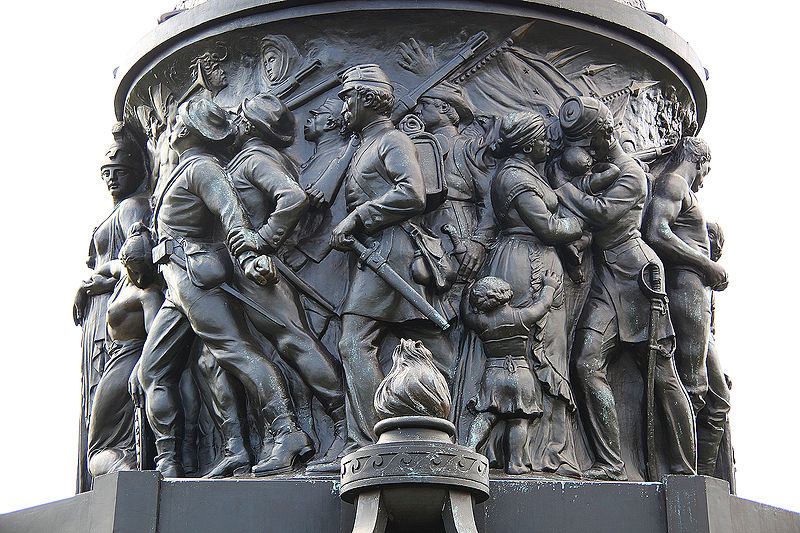Views expressed in opinion columns are the author’s own.
In a speech in front of Mount Rushmore this summer, President Donald Trump announced an executive order calling for the creation of a “National Garden of American Heroes,” which would include monuments of figures ranging from the Wright Brothers to evangelical icon Billy Graham. It was explicitly commissioned in response to numerous instances of controversial statues and monuments of people who upheld slavery and systemic racism being removed or destroyed. Against a backdrop of months of some of the most intense anti-racism protests this country has ever seen, the president asserted that this country would not allow an “assault on our collective national memory.”
Although the garden’s location has not yet been chosen, Greenbelt Park has been designated as one of the options. When the possibility of this garden being placed in Greenbelt was discussed in a city council meeting, it was met with overwhelming opposition.
This opposition partially stemmed from the idea that the monuments could be considered a message about honoring a particular version of American history. If this is what a “Garden of Heroes” would look like, placing it in Greenbelt Park would be an affront to the surrounding community, which deserves to have a say in this decision.
The president’s order is an improper use of executive power. Statues and monuments are often intended to reflect the culture and history of a local area, making it the job of the local community to make these types of decisions. When these decisions are made at a national level, there is always the risk of local communities having their values misrepresented and replaced by a different perspective.
The mayor of Greenbelt, Colin Byrd, expressed this same concern, saying, “There’s an over-homage being paid to certain conservative figures at the expense of not honoring certain liberal figures.” He specifically pointed out that, while figures important to the conservative movement such as Antonin Scalia are included, no progressive Maryland icons like Thurgood Marshall are. Oversights like these are inevitable if local communities’ input is not taken into consideration.
This executive order also fails to incorporate multiple perspectives on how we should be framing American history. Who we choose as “heroes” is a value judgement about the kind of historical figures we should be striving to emulate. There is certainly no perfect way of accomplishing this, but ideally a project like this would be done in a bipartisan manner that recognizes the diversity of our society.
In principle, I have no issue with having a National Garden of American Heroes designed to commemorate important historical and cultural figures. My objection to this current proposal is that it appears to be weaponizing monuments and statues as a way of exacerbating our society’s culture wars. In a time with growing conversation about how we should frame American history, unilaterally deciding who is a hero would be an imposition on those who want their monuments to reflect a different set of ideals.
Evan Crum is a junior government and politics and psychology major. He can be reached at ecrum42@umd.edu.



